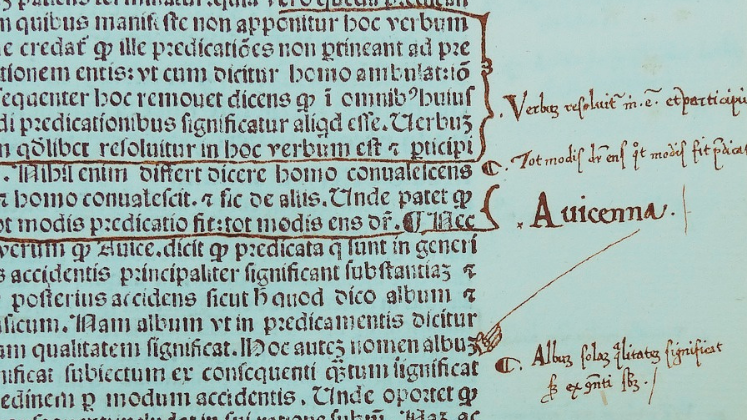In Model Cases: On Canonical Research Objects and Sites, Monika Krause explores how scholars in the social sciences and humanities repeatedly draw on particular cases and research objects, shaping our understanding of more general ideas in disproportionate ways. In this reading list, she highlights books that are based on neglected cases that make excellent contributions to scholarly debates and give a sense of the wide space of possibilities when it comes to combining what we are aiming to study and what we are trying to understand.
When biologists approach general questions about life, development and disease, they study particular organisms, such as mice, fruit flies or specific viruses.
 In my new book Model Cases: On Canonical Research Objects and Sites (Chicago University Press, 2021), I argue that scholars in the social sciences and humanities also draw on some cases more than others. The selection of research objects is influenced by a range of ideological but also by mundane factors. Eurocentrism and historicist ideas about development over time, convenience, schemas in the general population and schemas particular to specific scholarly communities all sponsor some objects over others.
In my new book Model Cases: On Canonical Research Objects and Sites (Chicago University Press, 2021), I argue that scholars in the social sciences and humanities also draw on some cases more than others. The selection of research objects is influenced by a range of ideological but also by mundane factors. Eurocentrism and historicist ideas about development over time, convenience, schemas in the general population and schemas particular to specific scholarly communities all sponsor some objects over others.
Some research objects, which I call ‘model cases’, are studied repeatedly and shape our understanding of more general ideas in disproportionate ways.
In this reading list, I highlight some books that are based on neglected cases, cases that are neglected with regard to particular categories of scholarly concern. These books make excellent contributions to specific scholarly debates. They also give us a sense of the wide space of possibilities in terms of combinations of material research objects (what we study), on the one hand, and epistemic research objects (what we are trying to understand), on the other hand.
I have chosen to emphasise monographs because to me, there is a special kind of joy in celebrating these, even though there is a lot to learn from research articles and from review articles by experts in their fields. I also try to highlight recent work, but sometimes break my own rule to discuss older books I admire or enjoyed reading.
Professions in the Global South
 Sociologists of the professions in the US have been so focused on doctors that even scholars who study lawyers can be heard complaining; they sometimes position their work as addressing a ‘neglected’ case.
Sociologists of the professions in the US have been so focused on doctors that even scholars who study lawyers can be heard complaining; they sometimes position their work as addressing a ‘neglected’ case.
In her book Solidarity in Strategy: Making Business Meaningful in American Trade Associations, Lynn Spillman goes much further in opening our minds to the range of groupings in the US that could be relevant to our theories of the professions. She examines, among other things, the professional self-understanding of exterminators and concrete repair specialists.
As Nitsan Chorev and Andrew Schrank have recently highlighted, there has been a dearth of research on professions in the full range of countries around the world, particularly in the Global South. I recommend Vincanne Adams’s Doctors for Democracy: Health Professionals in the Nepal Revolution, Siri Suh’s Dying to Count: Post-Abortion Care and Global Reproductive Health Politics in Senegal and Criminal Defense in China by Sida Liu and Terence C. Halliday.
Neglected Revolutions
 A paradigmatic example of postcolonial theory, the Haitian Revolution – closely connected to the over-studied French Revolution – is still neglected among students of revolutions in the comparative tradition. CLR James’s 1938 classic The Black Jacobins is always worth reading and reading again. We can also look forward to Rituals, Runaways and the Haitian Revolution by Crystal Eddins, published later in 2021 by Cambridge University Press.
A paradigmatic example of postcolonial theory, the Haitian Revolution – closely connected to the over-studied French Revolution – is still neglected among students of revolutions in the comparative tradition. CLR James’s 1938 classic The Black Jacobins is always worth reading and reading again. We can also look forward to Rituals, Runaways and the Haitian Revolution by Crystal Eddins, published later in 2021 by Cambridge University Press.
Sociologist Colin Beck is the scholar to ask about this as he has empirically analysed how different revolutions have fared in the literature. In a fascinating set of articles, he highlights Grenada in 1979, France in 1830 and the constitutional revolutions in the early twentieth century as other neglected revolutions. These are discussed in Charles Kurzman’s Democracy Denied, 1905-1915 and in Nader Sohrabi’s Revolution and Constitutionalism in the Ottoman Empire and Iran.
LGBTQ Life outside Iconic Cities
 The call for a sociology of rural LGBTQ life has a longer history, but it seems necessary again and again to try to break the cognitive link between LGBTQ life and gay life in specific kinds of large cities, as Amy Stone does in a recent article.
The call for a sociology of rural LGBTQ life has a longer history, but it seems necessary again and again to try to break the cognitive link between LGBTQ life and gay life in specific kinds of large cities, as Amy Stone does in a recent article.
Wayne Brekhus is a sociologist who has much to say about cognitive patterns in general and among social scientists in particular. He has expanded our understanding of gay men in his Peacocks, Chameleons, Centaurs: Gay Suburbia and the Grammar of Social Identity, which uses the case of suburban gay commuters to question powerful assumptions about the link between sexual orientation and identity.
More recently, Japonica Brown-Saracino’s How Places Make Us also draws out the importance of place by studying LBQ identities in a range of middle-sized cities, which are not only neglected in discussions of sexualities but also neglected in urban studies.
Neglected Forms of Law
 There are many things to like about Debbie Becher’s Private Property and Public Power: Eminent Domain in Philadelphia, but what I wish to highlight here is how this study examines a neglected area of law. Our theoretical debates about law and society have been overwhelmingly shaped by consideration of criminal law. Here Becher engages how property law is negotiated in struggles over urban development.
There are many things to like about Debbie Becher’s Private Property and Public Power: Eminent Domain in Philadelphia, but what I wish to highlight here is how this study examines a neglected area of law. Our theoretical debates about law and society have been overwhelmingly shaped by consideration of criminal law. Here Becher engages how property law is negotiated in struggles over urban development.
Arguably our imagination of international law has also centred on international criminal law, alongside humanitarian law, human rights law and the laws of war. This leaves out the dense professional and technical infrastructure highlighted by studies such as Antoine Vauchez’s Brokering Europe: European Law and the Making of a Transnational Polity.
Neglected World Regions
 Two of the books I most enjoyed reading overall in recent years cover different aspects of change and conflict in the Caucasus, an area that easily slips through the continental categories. One is Thomas de Waal’s Black Garden, a very thoughtful and carefully researched book on the history of the conflict between Armenia and Azerbaijan concerning Nagorno Karabakh. The other is Bourdieu’s Secret Admirer in the Caucasus by Georgi Derluguian, a study of the causes and consequences of the fall of the Soviet Union. There is a lot we can learn about political authority, livelihoods and violence from these cases and these studies.
Two of the books I most enjoyed reading overall in recent years cover different aspects of change and conflict in the Caucasus, an area that easily slips through the continental categories. One is Thomas de Waal’s Black Garden, a very thoughtful and carefully researched book on the history of the conflict between Armenia and Azerbaijan concerning Nagorno Karabakh. The other is Bourdieu’s Secret Admirer in the Caucasus by Georgi Derluguian, a study of the causes and consequences of the fall of the Soviet Union. There is a lot we can learn about political authority, livelihoods and violence from these cases and these studies.
To end by sharing one insight from Derluguian’s study that I find very memorable: in confronting the question of how we can explain the emergence of violent, religious terrorism in places like Chechnya, he urges us to consider that this particular political expression is not necessarily the ‘first choice’ even for its leaders. That formulation allows him to take actors’ motivations seriously, while situating them in a broader space of possibility, in a way that goes well beyond scholarly debates that can tend to circle around whether practices do or do not count as ‘resistance’.
Note: This reading list gives the views of the author, and not the position of the LSE Impact Blog, or of the London School of Economics. This post also originally appeared on the LSE Review of Books,
Image Credit: Egor Myznik via Unsplash.







